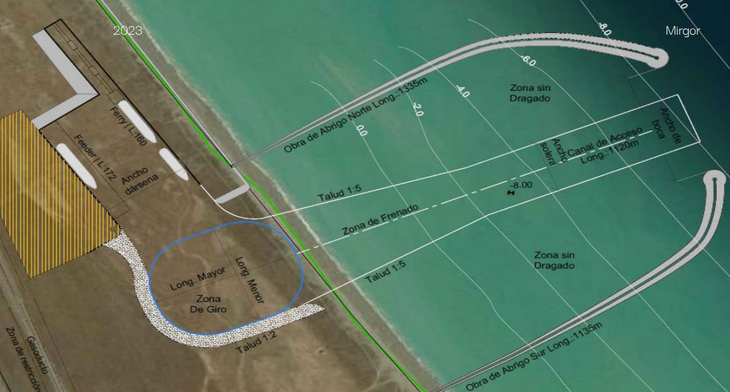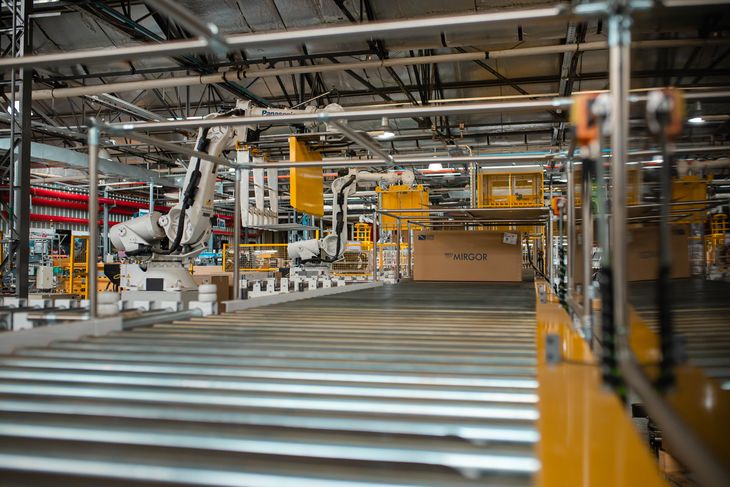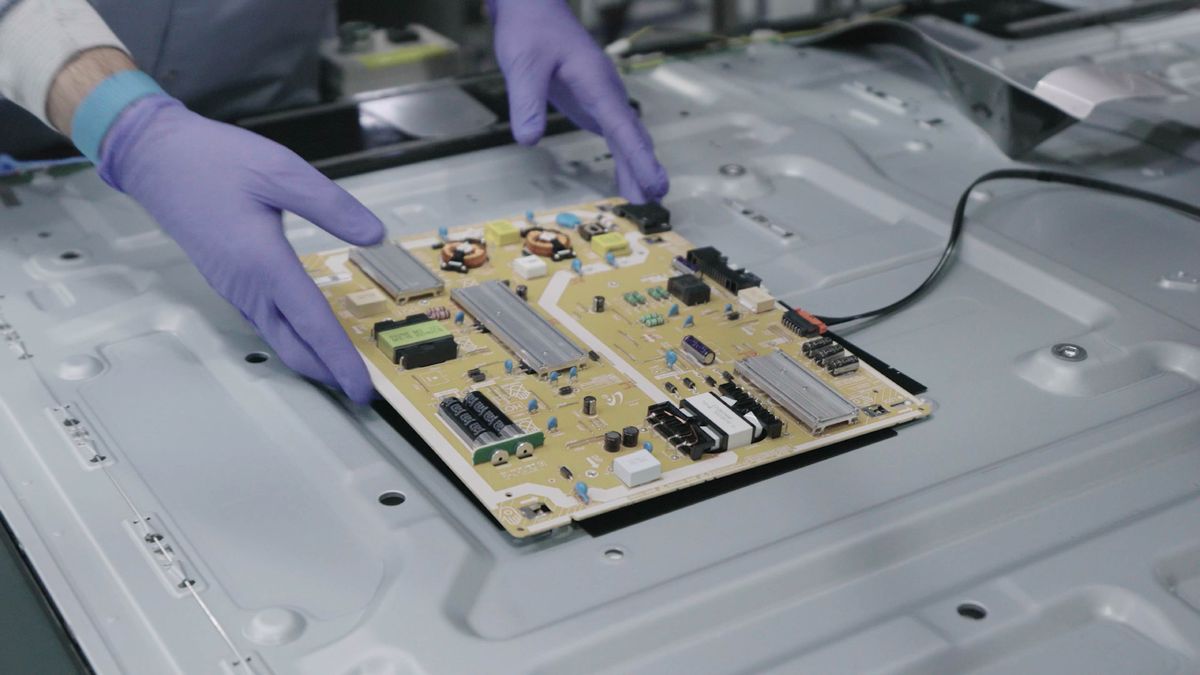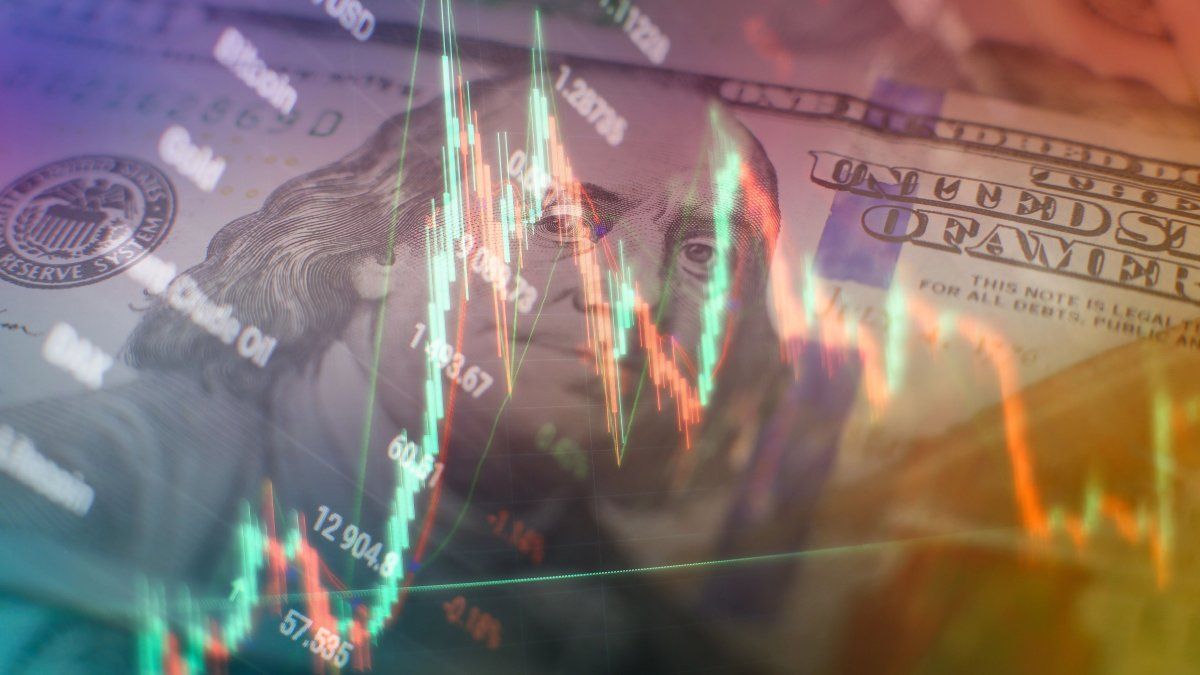As in every election, one of the issues discussed is industrial policy and, particularly, the regime for the promotion of Land of Fire. In an Ámbito tour of the city of Río Grande, from the company Mirgor they revealed their plans to expand the productive matrix of the province, through the investment of u$s 380 million in the first port in that city. Sources from the economic teams of the two main political coalitions told this newspaper that they have no plans to modify the regime in the short term.
This year the national capital company Mirgor celebrates 40 years. In the 32,000-square-meter industrial plant that Ámbito ran through in Río Grande, north of Ushuaia, in 1983 the air conditioner for the Peugeot 504 car was produced. In that same plant, the production of auto parts continues, both in parts and in air conditioning, but also in the so-called “infotainment”, that is, all the entertainment technology in a car, from the license plate to the radio and GPS.
In addition, they have another 4 plants in the province that total more than 60,000 square meters in area, and more than 2,500 industrial workers in three shifts. The monthly production amounted to 510,968 units of TV, cell phones, air conditioning and infotainment, according to the last data of June. It is that, although Mirgor began in the automotive sectiontoday its main business unit is consumer electronics.
mirgor 4.jpg
A port since 2024
The company’s next project is the installation of the first port Rio Grande, and the second in the province. “It is possibly one of the projects that is going to promote Tierra del Fuego the most in its history,” say Mirgor sources. With an investment of US$380 million that they will seek to raise from private capital in the next assembly, they will try to get construction started in mid-2024, and to be ready by the end of 2026.
The port is part of one of the initiatives that companies that are part of the Tierra del Fuego regime have to present to expand the productive matrix of the province, within the framework of what was established when the regime was extended for another 30 years. However, in the company they assure that the impact will not be only for Mirgor: they estimate that it could improve the competitiveness of companies by lowering logistics costs by up to 35%.
port.PNG

In addition, they highlight the possibility of “expanding the productive matrix”, since it will allow the unloading of 2,000 containers per month, which could be used for the current automotive, electronics or textile industry. But also for the transfer of equipment that the projects in dance of wind energy, offshore, green hydrogen and food.
“We are facing Antarctica and the Antarctic supply is made from Chile. Argentina could have everything, but it lacks infrastructure,” said a company source. The port of Ushuaia has a greater tourist use, while weather conditions make transfers from Chile difficult. Until now, the province authorized the environmental impact report, and the authorization of the Nation remains for the procedures of the waterways.
The port project was presented to the Ministry of Industry, together with another agro-livestock farmer. In fact, Mirgor claims to be in 58th place in the ranking of exporting companies, for the sale of cereals and oilseeds. Other companies on the island also made their presentations, but there has still been no official approval. This occurs within the framework of the renewal of the industrial regime, which established that in order for companies to maintain fiscal and tax benefits, they must contribute 3% of their sales to a fund for the expansion of the Fuegian productive matrix.
Although the industrial regime was extended at the end of 2021, the fiscal cost of the taxes that companies have exempted is usually discussed publicly, in a context where the parties debate how to lower the fiscal deficit. Ámbito asked Mirgor what they think will happen with the regime: despite the fact that it was extended, there is always uncertainty in companies. “It would be good if there were institutions, in Brazil no one discusses the industrial activities that are promoted,” they stated. “There is an entire province that depends on this,” they added.
mirgor 4.jpg

The future of the regime
As Ámbito learned, neither of the two main coalitions will make changes to the regime in the short term. It was during the management of Alberto Fernández that the extension was decided. For his part, the candidate for president of UxP, Sergio Massa, at the head of the Ministry of Economy, increased the tariffs for the importation of technological products. However, he also believes that the fiscal cost has to be discussed, and he will ask Congress during the 2024 budget debate, as he did last year.
On the side of Together for Change, sources from Fundación Pensar affirmed that the ideal plan is to establish optimal conditions of competitiveness for the entire economy, and not special promotion regimes. However, they affirmed that any change should be considered for the medium term. Meanwhile, an economist close to Patricia Bullrich added: “Productivity must be improved so that technology prices are more competitive, but we must not destroy what is, but build on what has been done.”
Source: Ambito




